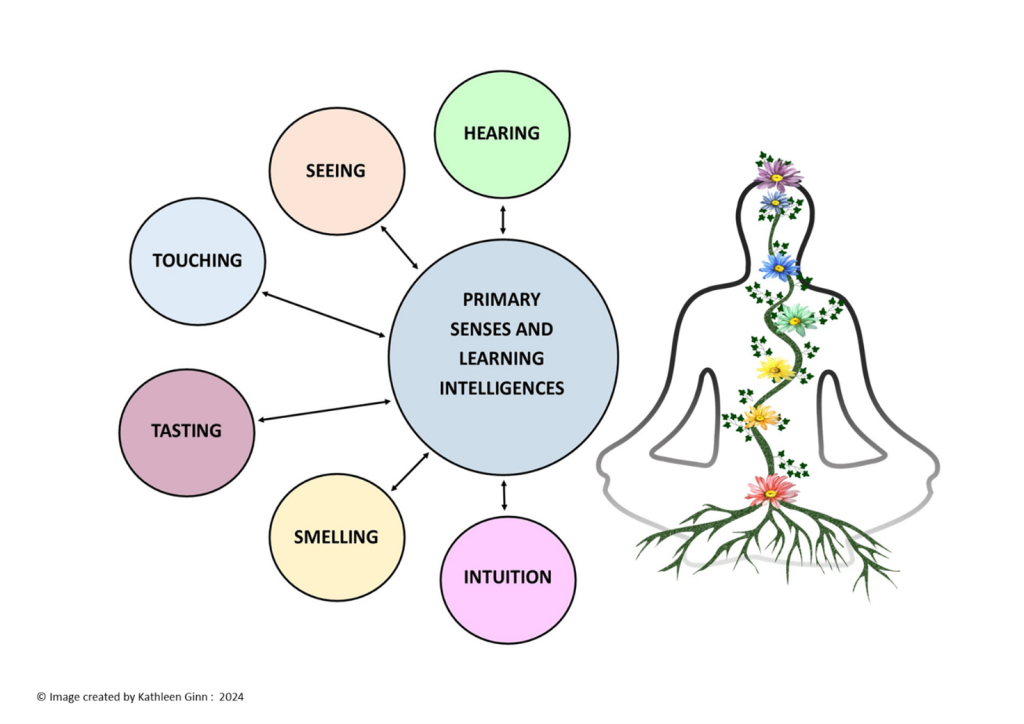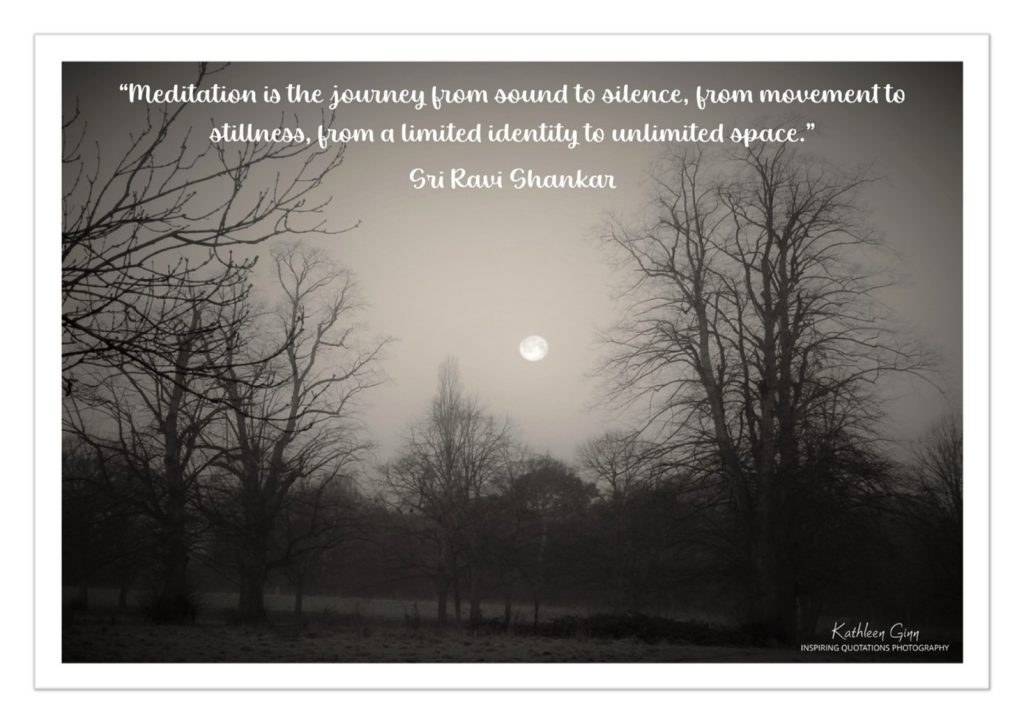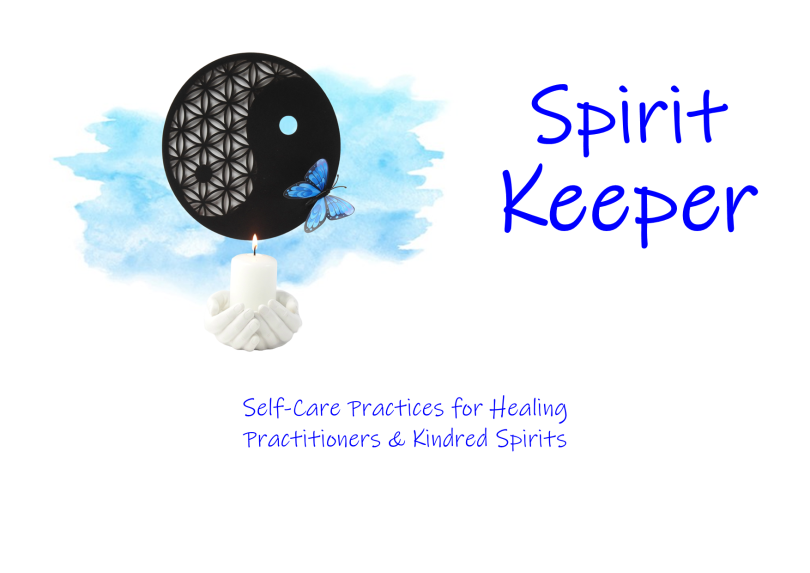Welcome, to Health & Wellbeing Magazine’s Spirit Keeper monthly column. This is the place where you will discover tips and practices for creating, developing and maintaining a personalised self-care practice.
In the first three months we have covered what a Spirit Keeper is and does; looked at the 4 pillars of knowledge: Physician-Patient know, love, heal and free yourself and discover your learning style.
In this month’s column, we are going to look at how your secret learning code can be used to choose appropriate self-care practices which promote the integration of mind, body, spirit and soul.
Summary of the Secret Learning Code
Humankind are naturally rapid sensory learners until they reach school age. Educational training then begins to focus mainly on auditory-visual learning within the classroom. However, all spiritual practices which have an overall guideline on how to prepare the mind, body and spirit to receive and recognise the Soul, set out to master the senses using primary intelligences associated with those senses.
Do You Know Your Learning Style?
Each of us has a preferred learning style or sequence. This will be based on our senses. Very simply the best lifestyle medicine practices are based on multiple sensory and intelligence practices.
- Auditory (to include musical intelligence)
- Visual (to include spatial awareness)
- Kinesthetic (to include movement / exercise)
- Gustatory (to include mindful eating, texture and tastes)
- Smell
- Intuition
- Intrapersonal intelligence (to include reflection / contemplation)
- Interpersonal intelligence (to include compassion and empathy)

All of us favour a specific sequence when we absorb information. By way of example using 3 primary senses/intelligences:
- Auditory, Visual, Kinesthetic
- Auditory, Kinesthetic, Visual
- Visual, Auditory, Kinesthetic
- Visual, Kinesthetic, Auditory
- Kinesthetic, Auditory, Visual
- Kinesthetic, Visual, Auditory
The importance of knowing your personal secret learning code is simply to choose the self-care practice which you will resonate with deeply and therefore remain motivated to practice it daily.
You may be very familiar with the concept of meditation and the benefits of meditation. However, for many people the idea of committing to a specific amount of time each day to meditate often loses its glamour when we find ourselves becoming bored with the meditation technique and we wish to engage in some other activity which we feel will give us more benefit.
Meditation – A Presence & Mindfulness Practice
Meditation is a presence practice. Meditation encourages expanded awareness through a quietening of mind and body. Meditation trains the mind-body to stop focusing and obsessing on specific thoughts. It enables an individual to expand the gap between one thought and the next. Meditation helps the mind, body and spirit to feel connected to Creative Intelligence / God / Source. Meditation at advanced levels lead to the experience ‘inner peace’. Meditation is presence mindfulness.
Benefits of Meditation
Meditation has been around for thousands of years and is well documented, particularly, in Eastern traditions. Meditation was originally designed to deepen one’s understanding of the mystical forces of life and bring an appreciation to the sacred nature of all life. Today, meditation is often prescribed and a mind-body tool under the label of complementary or alternative medicine. The process of meditation can help an individual to relax deeply, release obsession with over-thinking and promote better physical and emotional wellbeing.
Some of the physical and emotional benefits of meditation are known to include:
- Making you more self-aware of tension within the body.
- Making your more self-aware of obsessive thinking patterns.
- Bring your attention and focus into the present.
- Reducing feelings of overwhelm and negativity.
- Assists in building skills helpful in managing stressful situations.
- Deep relaxation which helps to lower resting heart rate.
- Deep relaxation which helps to lower resting blood pressure.
- Relaxation helps one to sleep better.
- Relaxation helps one become more creative and patient.
Why is Meditation important as a Self-Care Practice?
Spirit Keepers understand their inner power is directly associated with the ability to plug into the intelligence and power that underpins all of life as we know it on Mother Earth.
It is a daily opportunity to align the mind, body and spirit and then master the ability to detach from focusing on any one specific thought and train of thoughts. It increases holistic awareness and keeps one in the present. Quieten the mind and the Soul will speak.
Different Types of Meditation
- Autogenic Training
- Chakra Meditation
- Colour Meditation
- Creative Visualisation Meditation
- Doaist (aka Taoist) Meditation
- Drawing Meditation
- Focused Meditation
- Guided Meditation
- Kriya Yoga Meditation
- Kundalini Meditation
- Metta Meditation
- Mindfulness Meditation
- Presence Technique
- Raja Yoga Meditation
- Sahaja Yoga Meditation
- Shambala Meditation
- Sound Meditation
- Transcendental Meditation
- Tummo Meditation
- Vipassana Meditation
- Walking Meditation
- Zen Meditation
Given the variety of meditational techniques available, it is no wonder we will often go and pick a meditation which a friend has raved about or which a magazine article has recommended. Spirit Keeper’s are deeply aware of the importance of having a daily sacred practice which includes meditation. They are also aware of the need to choose one which they will remain committed to practising and mastering as part of integrating their mind, body, spirit and soul.

Learning Styles & Meditation
By completing the questionnaire in last month’s column, you will now know your preferred learning style sequence. This now puts you in a powerful position to choose and trial out specific types of meditational techniques which focus on the primary three senses / intelligences and/or an amalgamation of all three.
As you will see there are a plethora of different meditations under each primary learning sense / intelligence.
You may well be asking, “how do I choose and practice meditation now that I know my secret learning code?”
Here is what I recommend.
If your preferred learning sequence is auditory, visual, kinesthetic then choose an auditory dominant meditation to practise. Try different ones out by making a commitment to trial each method out for 1 week at a time. Keep a journal of your experiences with each method. Then look at which one truly resonated with you and gave you the best experience. Then use that one to master the practice of meditation. The same technique applies to the other learning codes.

The one thing I feel the Buddhists have right, is the understanding that mastering different styles of meditation is important. Depending on what is happening in our daily world we need to be able to adapt our meditation time based on our mind-body experience. By way of example, you may choose to do a sitting meditation but find after 5 minutes your attention is now focused on an aching body part. This is the cue to get up and move into a walking meditation. And let’s say during your walking meditation you hear a sound which reminds you of a task you need to do later in the day, and so you take that cue to return to standing or sitting in stillness and focusing on a breathing practice which draws your attention back into the meditation and present moment.
Start with one practice that enables you to be motivated and committed to a regular self-care practice of meditation. However, recognise to be a masterful meditator you will embrace and learn how to use multiple senses / intelligences so that your life becomes one of mindfulness and living in the present outside of setting intentions, goals and future events.
Meditation is both a science and an art. You will not become a masterful meditator in one week. However, through the power of compounding 15-20 minutes daily over a year or years, you will become a masterful meditator and be able to hear, see and feel your Soul.
Monthly Research Project
I personally believe it is important for Spirit-Keepers to learn how to align themselves energetically frequently throughout the day and use techniques which calm the nervous system. This ability to constantly check-in, re-align and be present are much needed in the fast paced living of today’s world.
This month research the subject of meditation and the vagus nerve theory and see what you can learn about preparing your nervous system to handle higher frequencies of information.
Words of Wisdom
“First it is an intention. Then a behaviour. Then a habit. Then a practice. Then second nature. Then it is simply who you are.”
~The Alchemist Instagram Page
Next month…
Next month we will begin the journey of learning self-care practices from the perspective of learning styles and contemplation.
Until next month. From one kindred spirit to another – be safe, be well, be authentically you.
In gratitude
Kathleen



